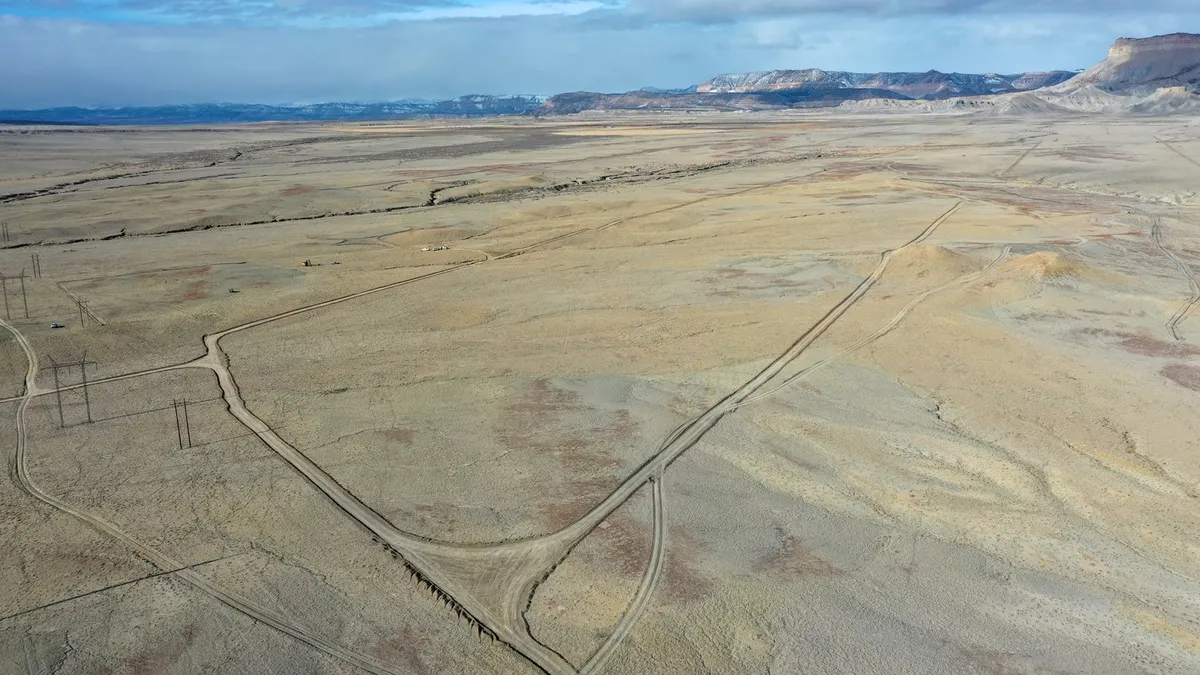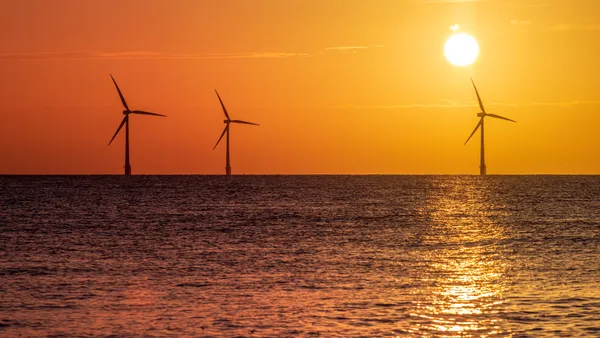Dive Brief:
- Utah-based renewables and storage developer rPlus Energies has closed a $1 billion construction debt financing deal for its 800-MW Green River Energy Center, or GREC, which ranks as the seventh largest solar-plus storage project in advanced development in the U.S.
- Although originally conceived as a smaller project, rPlus Energies quadrupled the storage capacity of GREC in response to a request from offtaker PacifiCorp. The expansion will enable the project to serve as a sort of all-renewable “peaker plant,” in response to demand from the utility, rPlus Energies president and CEO Luigi Resta said.
- Like most renewable energy developers, rPlus has historically sold most of its projects to finance its project pipeline. In addition to the recent $1 billion GREC deal, recent private equity investments will allow rPlus Energies to transition to an owner-operator model.
Dive Insight:
Solar debt financing has soared this year in response to waning investor interest in the sector. But while Resta has noticed an increase in investors avoiding solar pending the results of the presidential election, he said that wasn't the primary reason why he chose to pursue a $1 billion deal to finance the construction of GREC. Rather, he said the financing — plus an earlier $460 million deal with private equity firm Sandbrook Capital — will allow his company to transition to an owner-operator model.
“A lot of companies want to own and operate, but [developing renewable energy] is so capital intensive that it gets difficult,” Resta said. “It's not uncommon that companies keep three and sell one, or keep two and sell two. For us, we're at the stage of keeping the next round [of projects], but I would say it's a natural progression for a company like ours.”
Resta said he first began work on GREC in 2016 while he was working with Blackstone’s renewable energy group, before he founded rPlus. At the time, he said, he could see that interconnection was going to become a problem for solar developers, so he began to look into buying properties in eastern Utah, where transmission is relatively plentiful thanks to the region's history of coal production.
When he started the project, Resta assumed it would be too large for a single commercial offtaker. He bid into a PacifiCorp RFP in 2020 and ultimately won an offtake contract.
PacifiCorp asked rPlus to quadruple the project's storage capacity in 2023. Fortunately, they had the land available to tack the expanded capacity onto their existing plans, Resta said.
The combination of 400 MW of solar plus 400 MW of 4-hour battery storage will allow the project to serve as though it were both a solar farm and a dispatchable, but carbon-free, “peaker plant,” Resta said. The project will begin operation in 2026.
The next few projects in the rPlus pipeline are somewhat smaller, but this won't be the company's final foray into large-scale energy storage, Resta said. The company currently has 15 pumped-hydro energy storage projects in various stages of development.














